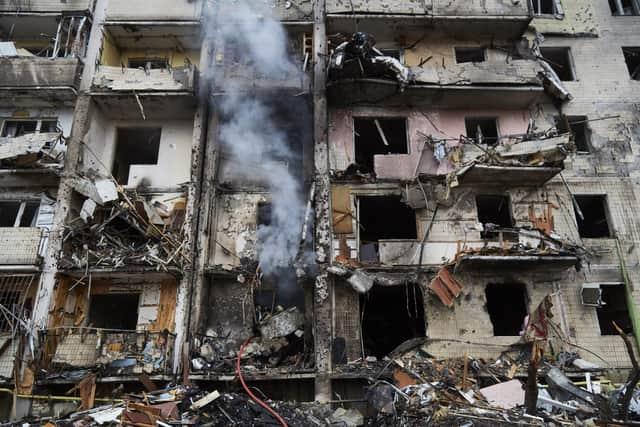"NATO and Russia need to reach an agreement" - Leeds university professor on invasion's impact on international relations
and live on Freeview channel 276
The recognition of the self-proclaimed Donetsk People’s Republic and Luhansk People’s Republic by the State Duma of Russia and the subsequent invasion of these regions by the
Russian army will have great repercussions on how the EU sees itself in a militarily and geopolitical way, and on the present and future orientation of NATO.
Advertisement
Hide AdAdvertisement
Hide AdSince its establishment as an intranational polity, the EU have always relied on NATO for its defence. Unable or unwilling to develop a coherent defence policy, the geopolitical interests


and defence mechanisms of the EU have been inexorably aligned with those of the US, since the latter is NATO’s leading member.
The EU is facing a great test concerning its energy and foreign policies respectively. If the EU is opposed to Russia’s expansionist moves, how would it oppose it? Are the EU member states prepared to move faster towards renewables than originally planned and effectively cut ties with Russia’s gas exports?
The EU will have to develop a foreign and energy policy that is independent of an American approach largely dominated by the narratives and anxieties of the Cold War.
Advertisement
Hide AdAdvertisement
Hide AdWhat is NATO for? Soon after the end of the Cold War, NATO saw itself as an agent for national building. Following the disastrous attempts of nation building in Afghanistan, Iraq
and more recently in Libya, NATO has found itself in the awkward position of revisiting disputes that supposedly ended in the early 1990s.
In effect, NATO and Russia need to reach an agreement that takes into account the historical and geopolitical dynamics in the region and puts an end to their respective expansion plans.
If not, Ukraine will continue to be deployed as a proxy target for Russia’s historical grievances and NATO’s mishandled appeasement of Vladimir Putin during the war on terror.
Advertisement
Hide AdAdvertisement
Hide Ad